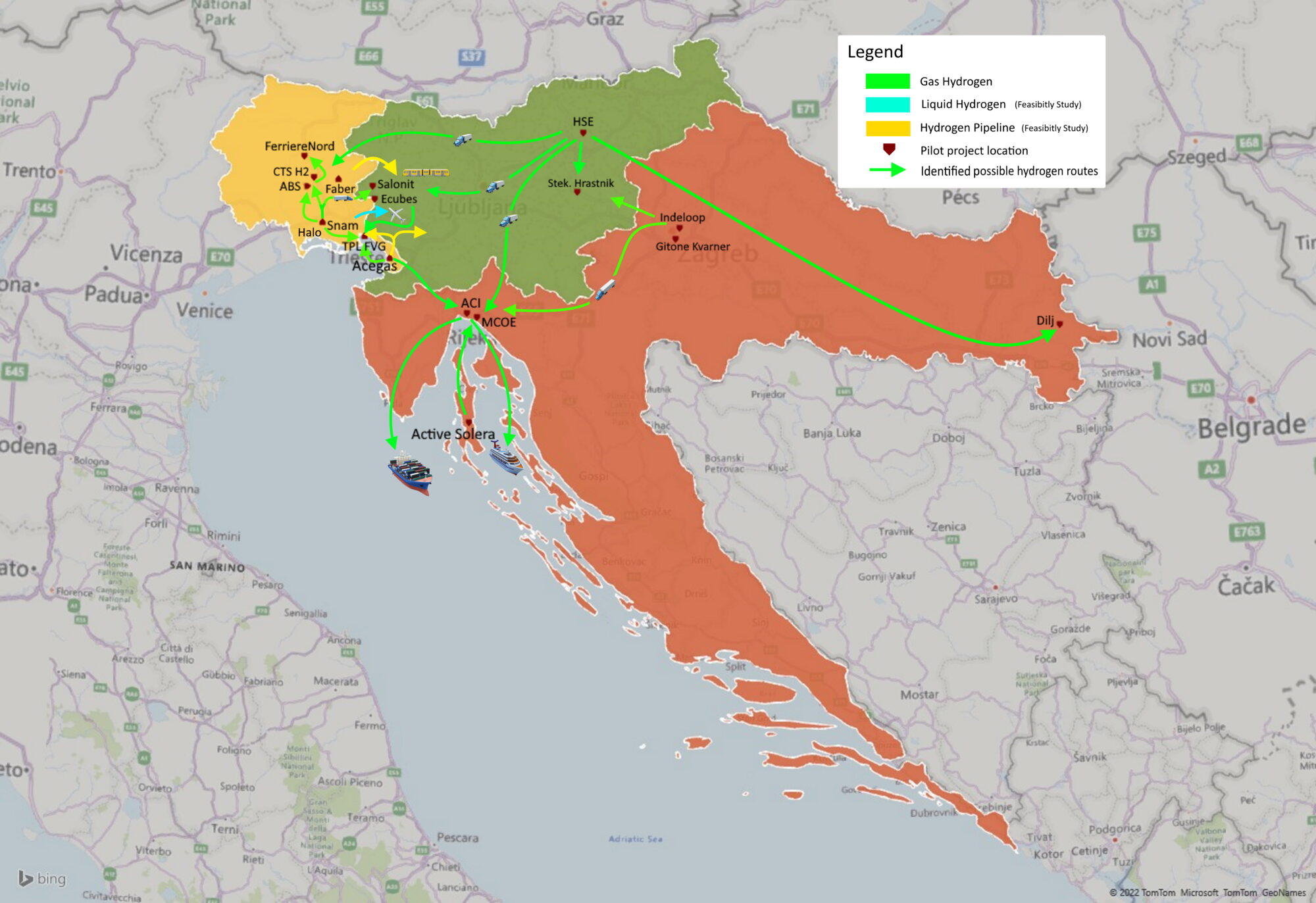With the North Adriatic Hydrogen Valley (NAHV) project, lead partner Holding Slovenske Elektrarne (HSE), META Group and the entire consortium of 37 partners, drawn from Slovenia, Croatia and the Autonomous Region of Friuli Venezia Giulia in Italy are proud to position their macro-region firmly ON THE HYDROGEN FUTURE MAP!
Rome, 24 July 2023 – HSE, the lead partner in the NAHV project, on behalf of the entire consortium, including META Group, last week signed with the Clean Hydrogen Partnership Joint Undertaking, a contract on the co-funding of the NAHV project, involving EUR 25 million in grants. This act served as the official green light for the implementation of this transnational European project as part of the Horizon Europe programme, which is aimed at establishing a dedicated hydrogen valley. The project will be implemented as of 1 September 2023, will last 72 months and will feature seventeen pilot projects across all three partner territories.
META Group, as communication and dissemination partner in the project, will be responsible for mobilizing outcomes amongst the early adopters of NAHV KERs, promoting best practices in renewable hydrogen for the benefit of European citizens, governments and industry players, and raising general awareness.
The partnership features a total of 37 organisations (34 partners and 3 associate partners): companies, universities, institutes and other public institutions from three territories: Slovenia, Croatia and the autonomous region of Friuli Venezia Giulia in Italy. The concept of the project encompasses the entire chain of the use of renewable hydrogen, from its production, storage and distribution to its end use in various sectors, mainly industry and land and maritime transport. The project received the highest evaluation of all Hydrogen projects presented for the call and was hailed by the European Commission as a Flagship Initiative
Decarbonizing Industries and Creating Green Jobs
Industrial stakeholders from all three countries will develop pilot projects to produce more than 5,000 tonnes of renewable hydrogen per year from renewable energy sources and its storage, distribution and use. One of the most important objectives of the project is to create a renewable hydrogen market, both in terms of demand and supply, which would make it a competitive energy product of the future. By introducing advanced technologies for the utilisation of hydrogen and by developing know-how and infrastructure, the project also pursues other key objectives of the European Green Deal.
In particular, it concerns the decarbonisation of major industrial sectors, such as steel and cement production, as well as sustainable transport solutions to reduce the carbon footprint. In this way, the NAHV project begins to create a comprehensive ecosystem for the transition to the use of renewable hydrogen, which includes production and service activities to meet the needs of households and citizens, thus creating the jobs of the future by planning the required skills and competencies.
This ambitious initiative not only aims to make hydrogen a competitive energy solution but also leads the charge in decarbonizing major industries and fostering sustainable transport solutions, all while paving the way for a greener future and creating the jobs of tomorrow. “The significance of this project was underscored by Ursula von der Leyen in her opening speech during the Hydrogen Week, where she highlighted NAHV as a shining example for other potential hydrogen valleys across Europe” remembered Marco Franchin, Project Manager at META Group. “NAHV will contribute to cut greenhouse gas emissions and improve the energy and economic efficiency, security and resilience of the energy system. Moreover, it will support the creation of a hydrogen market, and consequently, the creation of green jobs”.

